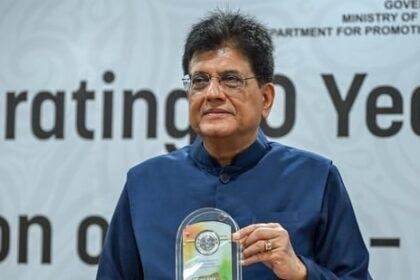Government Shutdown: Trump Calls for Immediate Reopening Amid Economic Success
In a striking turn of events, former President Donald Trump has publicly criticized Democratic lawmakers for their role in the ongoing government shutdown, which he claims is occurring during one of the most prosperous economic periods in U.S. history. His comments, made on Truth Social, come as negotiations in the Senate have stalled, leaving millions of Americans affected by the shutdown.
The Current State of Affairs
As of Monday evening, Trump expressed his frustration over the government closure, stating, “Democrats have SHUT DOWN the United States Government right in the midst of one of the most successful Economies, including a Record Stock Market.” He emphasized the negative impact of the shutdown on various programs and services that Americans depend on, urging Democrats to reopen the government immediately.
The shutdown was triggered after Senate Democrats blocked Republican efforts to pass a funding bill, ensuring that the impasse would continue for at least another week. Senate Minority Leader Chuck Schumer, a Democrat from New York, has made it clear that his party will not support any funding measures unless they include an extension of expiring ObamaCare subsidies.
The Political Landscape
The current standoff highlights the deep divisions within Congress. Senate Majority Leader John Thune, a Republican from South Dakota, requires at least eight Democratic votes to pass a bill that would fund the government through November 21. However, only a few Democrats, including Senators John Fetterman of Pennsylvania, Catherine Cortez Masto of Nevada, and Angus King of Maine, have shown willingness to break ranks and support the GOP’s proposal.
Democrats are particularly concerned about the potential consequences of not extending the ObamaCare subsidies, which could lead to skyrocketing premiums for millions of Americans. Both parties have expressed a desire to reach an agreement, but they remain at an impasse regarding the timing and conditions of any deal.
Trump’s Position and Historical Context
Trump’s remarks come at a time when the U.S. economy is experiencing significant growth, with record stock market levels and low unemployment rates. Historically, government shutdowns have often been politically charged events, with both parties blaming each other for the fallout. The last major shutdown occurred in late 2018 and early 2019, primarily over funding for Trump’s proposed border wall, which resulted in a 35-day closure-the longest in U.S. history.
In his Oval Office comments, Trump indicated a willingness to collaborate with Democrats on healthcare reform, stating, “I’d like to see a deal made for great healthcare.” This marks a notable shift in tone, as Trump has previously been critical of the Affordable Care Act (ACA), which he has sought to dismantle during his presidency.
Schumer’s Response
In response to Trump’s comments, Schumer reiterated the need for the president’s involvement in any negotiations. He pointed out that many House Republicans, led by Speaker Mike Johnson, are opposed to extending the ACA subsidies, complicating the path to a bipartisan agreement. Schumer stated, “We need the president involved… Good is not enough. You need Johnson and you need Trump to get it done.”
This highlights the intricate dynamics at play within the Republican Party, where factions often disagree on key issues, including healthcare. The ongoing negotiations reflect a broader struggle within Congress to balance party priorities with the needs of constituents.
The Broader Implications
The implications of the government shutdown extend beyond immediate political posturing. Federal employees, government contractors, and countless Americans who rely on government services are feeling the effects. Historical data shows that government shutdowns can lead to significant economic disruptions, affecting everything from public services to consumer confidence.
As the shutdown drags on, public sentiment may shift, placing pressure on lawmakers to find a resolution. The political landscape is further complicated by the upcoming 2024 elections, where both parties are keenly aware of the potential repercussions of a prolonged shutdown.
Conclusion
The current government shutdown serves as a stark reminder of the deep political divisions in the United States. With Trump calling for immediate action and Democrats standing firm on their demands, the path to reopening the government remains uncertain. As negotiations continue, the stakes are high for millions of Americans who depend on government services and programs. The coming days will be crucial in determining whether bipartisan cooperation can emerge from this impasse, or if the shutdown will continue to impact the nation’s economy and public welfare.











